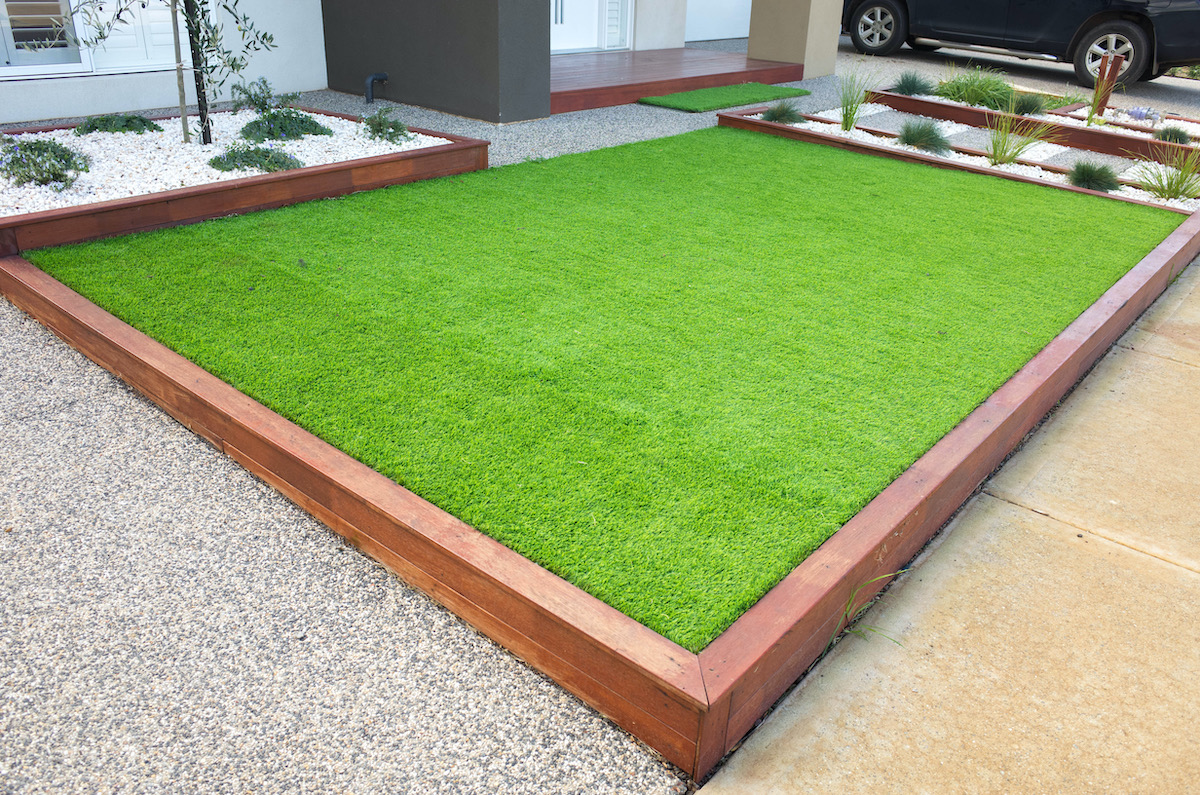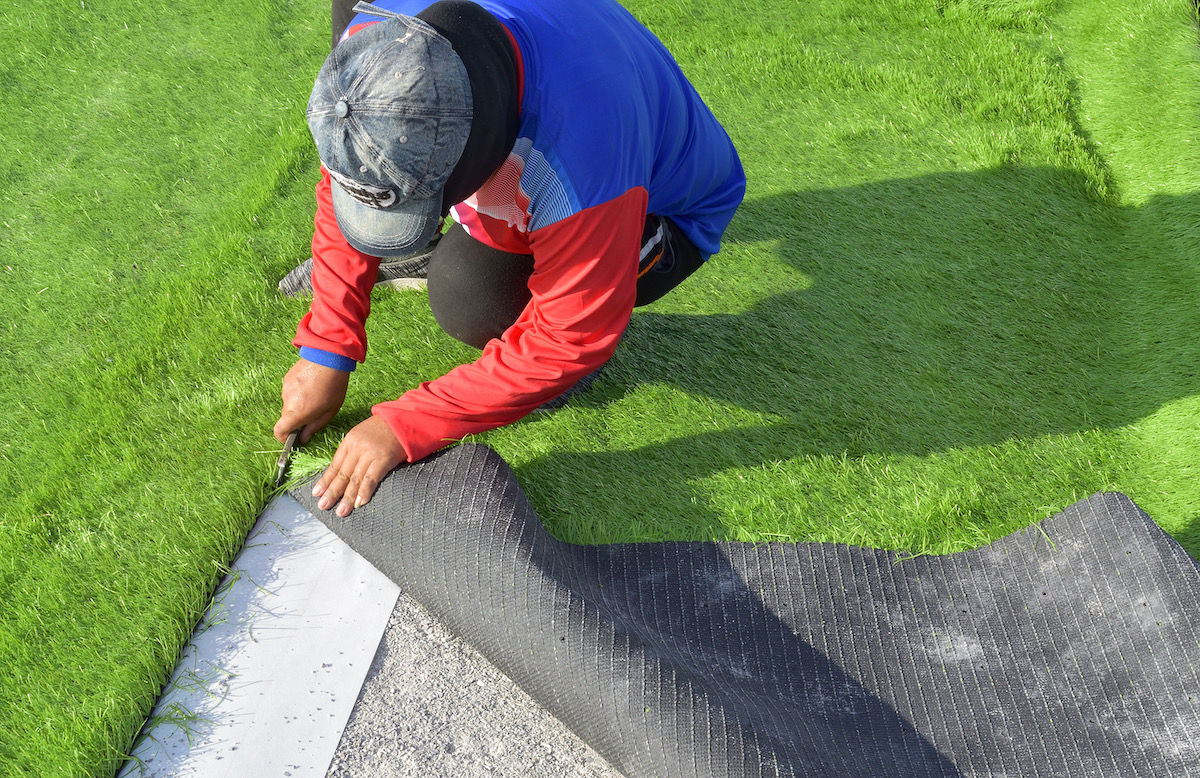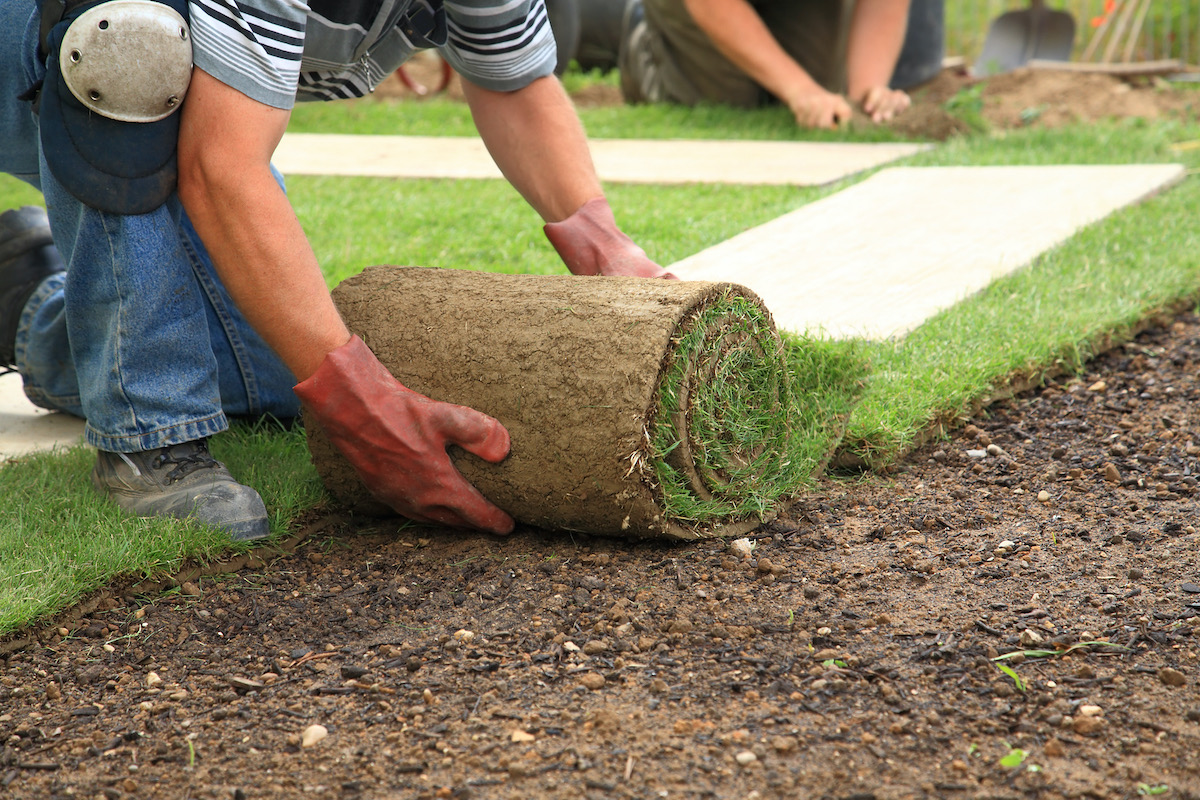A well-maintained lawn is a hallmark of a beautiful home, but keeping natural grass in tip-top condition requires a considerable amount of time, money, and effort.
For this reason, many homeowners in the UK are turning to fake lawns as a low-maintenance alternative. However, while artificial grass offers some benefits over natural lawns, they also have drawbacks that should be considered before you make your final decision.
In this article, we explore the pros and cons of real grass vs artificial lawns and determine whether fake grass is worth the initial outlay.
Benefits of real grass

Real grass has been a popular choice for homeowners for generations, and it offers a range of benefits.
Primarily, a natural lawn looks and feels great. It provides a soft and welcoming space that is perfect for children and pets to play on, and it can add to your home's aesthetic appeal.
Additionally, natural grass has plenty of positive environmental benefits.
Real grass helps to reduce air pollution, produces oxygen, and regulates temperatures. On top of that, it will absorb and filter rainwater, which will reduce runoff and can help prevent flooding.
In terms of our wellbeing, real grass can also have some benefits. Studies have shown that spending time in natural green spaces can reduce stress and improve our mental health.
Drawbacks of real grass
While natural grass has many benefits, it also has some significant disadvantages.
First and foremost, maintaining a real lawn requires a lot of time and effort. Homeowners must mow, fertilise, and water their lawns regularly, which can be a significant drain on time and resources. Additionally, natural grass can be expensive to maintain. Costs associated with maintenance, such as lawnmowers, fertiliser, and water, can add up quickly.
Believe it or not, natural grass can also have environmental implications.
Maintaining a lawn requires a lot of water, and in some areas, this can be a scarce resource. Moreover, fertiliser and pesticide use can be harmful to our rivers and waterways, not to mention the obvious implications for insect life and the food chain in general.
Benefits of fake lawns

Artificial lawns offer several benefits over natural grass.
Chiefly, it requires minimal maintenance. Unlike natural grass, which requires regular mowing, fertilising, and watering, fake grass requires very little upkeep. It does not need any of the above, which can save homeowners time and money in the long run.
Second, fake lawns are highly durable. Fake lawns can last for many years and will withstand heavy use and foot traffic, making it an excellent choice for families with children or pets.
Finally, artificial lawns can be a more cost-effective option over the long term.
Although the initial installation cost can be high, homeowners can save money on maintenance and replacement costs in the long run. For this reason, artificial grass is becoming an increasingly popular choice for homeowners in the UK.
Drawbacks of fake lawns
Despite the advantages listed above, artificial grass also has some drawbacks.
Firstly, it’s not environmentally friendly. Unsurprisingly, fake grass is made from plastic, which is a non-biodegradable material that can take centuries to break down. Furthermore, the production and transportation of artificial grass can leave behind a significant carbon footprint.
In addition, there are concerns over the ‘crumb rubber’ used in some artificial lawns, which may be harmful to human health.
The plastic used in the production of man-made grass is the same kind used in everyday household items, making it safe for both humans and our pets. However, the rubber that supports the grass and helps make the surface soft to walk and play on may contain chemicals–namely polycyclic aromatic hydrocarbons (PAHs) and volatile organic compounds (VOCs)–that can potentially be harmful.
Finally, most will agree that artificial lawns simply do not look as attractive as the real thing.
Although the quality of artificial lawns has improved significantly in recent years, they still lack the natural feel and texture of real grass. Additionally, fake grass can become discoloured and damaged over time, detracting further from its appearance.
Is artificial grass worth the outlay?

Ultimately, the decision of whether to install fake grass or maintain a natural lawn will depend on a variety of factors, including personal preferences, budget, and environmental concerns.
For homeowners who are short on time and money, artificial lawns can be an excellent option. They require minimal maintenance, are highly durable, and can save homeowners money over the long term. However, for those who value the natural look and feel of a real lawn, natural grass will always be the better choice, despite the additional maintenance and costs.
If you do decide to install artificial grass, it is important to choose a reputable supplier and installer.
Look for a company that uses high-quality materials and offers a guarantee on their products. Additionally, be sure to choose a lawn that blends in with the surrounding landscape as much as possible.
Final thoughts on fake vs. real grass

In conclusion, the choice between real grass vs fake lawns is not a straightforward one.
While fake lawns offer some benefits over natural grass, they also has some significant disadvantages. Ultimately, homeowners must weigh the pros and cons of each option and decide which is best for their individual circumstances. With careful consideration and planning, both natural and artificial grass can provide a functional outdoor space for families to enjoy.
When it comes to aesthetics, however, keeping it real will always get our vote.
If you are considering buying or selling property in or around the capital, speak to Petty’s.
We’ve been helping people like you move home for well over a century, so we know a thing or two about buying and selling property in and around London and West Essex.
Pop in, call, or drop us a line to find out how we can help you keep your stress levels to a minimum while you’re in the property market.

As one of our Sales Negotiators, Richelle engages with clients on a daily basis. Her previous professions include performing and hospitality, so she has taken to her role with us effortlessly. A keen meditator, Richelle is kind, caring, and a respected part of Team Petty’s.
020 3370 8786 / Email Directly